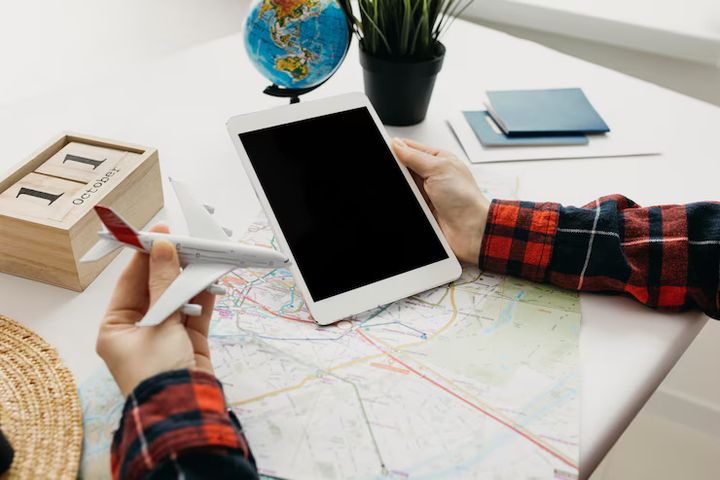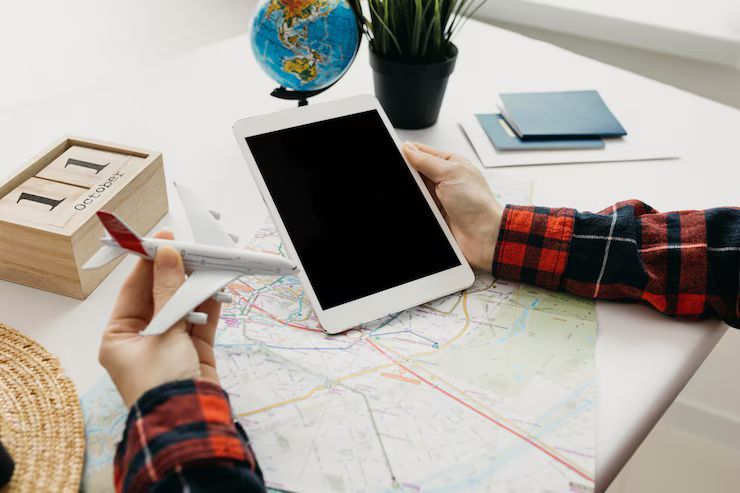
Best Travel Planning Tools and Apps in 2025
Travel planning tools and apps help individuals organize tours by offering facilities such as travel programs, housing booking, transport planning, budget tracking and local activity recommendations. These devices are available from printed guidebooks and spreadsheets to real time, smartphones from AI-powered platforms and desktop machines.
The purpose of these devices is to make the travel process easier, faster and more efficient – reduce the research burden and help users live, organized and stay within the budget. Whether it is for family holidays, a single backpacking trip or business trip, planning apps can increase convenience and confidence before and during a trip.
Why does travel plan equipment mean in 2025
In today's speed-packed and often unexpected travel environment, the right plan equipment has become necessary. They play an important role:
-
To reduce travel stress: With access to real-time updates, users can better handle delays, changes or cancellations.
-
Security improvement: Many apps now include emergency contact, health updates and safety alerts.
-
Time and cash savings: Equipment can compare prices, can suggest cost-effective options and notify users of offers.
-
Increasing accessibility: Passengers with specific requirements can find the Language, Access or Diet Settings app.
Who benefits from these devices?
-
Tourist (national and international)
-
Business passenger
-
Digital nomadic
-
Travel agent and advisor
-
Planning of family
Problems they solve
-
Confusion of order, route and plan
-
Misconception due to language barriers
-
Overport for transport or housing
-
Limited information on local attraction and customs
Large trends and updates in 2024-2025
Travel planning tools in 2025 are more intelligent and individual than ever, thanks to artificial intelligence, real-time data integration and user development. Below is the summary of the most remarkable trends.
-
In February 2025, Google Maps introduced the AI-curated travel tips that integrate users of users, images and order options.
-
In April 2025, Airbnb updated its Trip Planner with adaptable group service and integrated local guides.
Legal and political views affecting travel planning equipment
While travel planning apps are global, they are subject to specific rules and data security laws, especially when handling personal information, site tracking and payment data.
Passengers should also know about visa requirements, Kovid-19 travel updates and destination-specific security rules, which many apps now include as part of their services.
The most help plan tools and apps in 2025
Here is a curate list of reliable travel tools and apps that complete a wide range of travel:
All-in-one planning tool
-
Tripit: Creates and automatically directs your tourism program.
-
Vandalog: Ideal for group journeys with root mapping and tracking of expenses.
-
ROTRIPERS: Show good, beautiful routes and attractions for American car trips.
Flight and hotel bookings
-
Skyscanner: Flight Comparison and Price Alert.
-
Hopper: Using AI is doing the best time to book flights and hotels.
-
Booking.com: User friendly with flexible order options.
Housing options
-
Airbnb: Book apartments, unique migration and experience.
-
Couchsurfing: Connect the locals and find free stages.
-
Hostelworld: Excellent in budget-friendly hostels with confirmed reviews.
Navigation and maps
-
Google Maps: Instructions, local guides and public access.
-
Rome2rio: Multi-model transport Planner shows aircraft, buses, trains and Ghats.
-
Map.me: Offline maps with runes and interest rates.
Expenditure management and conversion of currency
-
Splitway: Split and track group expenses.
-
Xe Currency: Real time change with offline opportunities.
-
Trail Wallet: Travel budget for iOS users.
Language and communication
-
Google translation: Text, voice and camera translation.
-
ITRANSLATE: Provides offline translation in the premium version.
-
Duoolingo: Funny way to learn big sentences in more than 30 languages.
Safety and Health
-
Quote: Travel element, Safety News and Covid-19 update.
-
AIR DEGETER: Search and order English speaking doctors abroad.
-
Geoson: Safety assessments for the neighborhood including single and female passenger indicators.
Frequently asked questions
1. Do travel planning apps offline work?
Many apps like Google Maps, Tripit and Maps provide offline functionality. Passengers should download the required files or maps before departure to access them without Wi-Fi.
2. Are these devices free to use?
Most travel planning apps offer free versions with basic features. Some provide premium upgrading for a little extra functionality such as advanced travel program, offline access or advertising experience.
3. How do these apps protect my personal information?
Valid apps follow data security laws such as GDPR or CPRA. To secure your information, see for privacy rules, data encryption details and permission settings in the app.
4. Which is the best app for Group Travel Plan?
Verderalog and Rotripers are excellent for coordination with friends or teams. They allow real-time cooperation, shared checklist and synchronization routes.
5. Can these devices help during an emergency?
Yes. Apps such as quote and geozer provide real-time warnings about local risk, political turmoil, health problems or natural disasters. Google Maps and Apple wallets also store emergency contact and ID data.
Summary: The travel schedule is smart, safe and user-centered in 2025
Today it is planning a trip far ahead to book a flight. The best tools help the passengers organize, adapt and enjoy the journey with less disturbance and more confidence. Whether you are looking for the fastest route, best deals, group coordination or emergency support, a travel app is designed for that purpose.
Cites update trends, legal awareness and reliable equipment, passengers can take better steps towards safe and pleasant experiences, 2025 and beyond.






